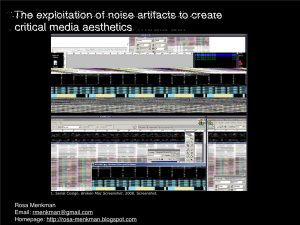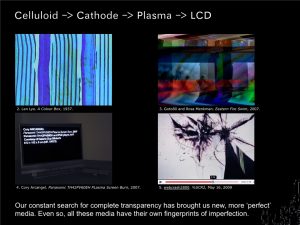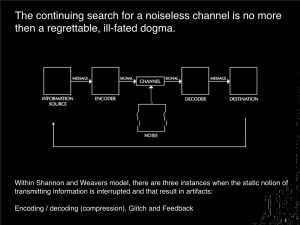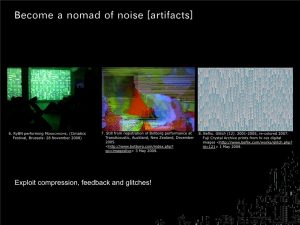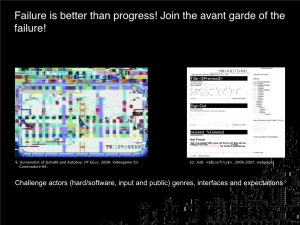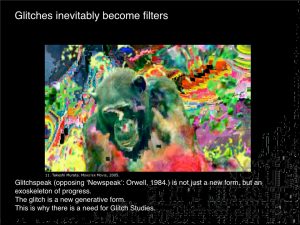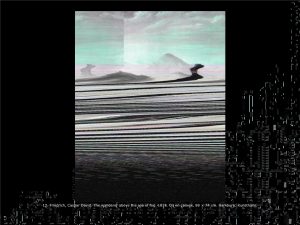“The use of artifacts as critical media aesthetics” presented by Menkman
Symposium:
Session Title:
- Transformative Creativity - Participatory Practices II
Presentation Title:
- The use of artifacts as critical media aesthetics
Presenter(s):
Venue(s):
Abstract:
Abstract
In 1961 Foucault wrote in the First Preface to Histoire de la folie, that the modern man and the madman no longer communicate; there is no longer a common language connecting the two; there is only silence. According to Foucault, the language of psychiatry, which is a monologue of reason on madness, was able to establish itself only on the basis of such a silence:
“[…] the constitution of madness as mental illness, at the end of the eighteenth century, affords the evidence of a broken dialogue, posits the separation as already acquired, and thrusts into oblivion all those imperfect words, without a fixed syntax, and a little stammered, through which the exchange of madness and reason took place.”
Foucault stated that reason is the cultural standard against which everything is measured up. Everything that falls outside of this standard falls inside what he describes as a void. Yet this void constitutes culture as much as everything that culture itself is made up from. Foucault concluded that therefore, there can be no reason without madness. He set out to write an archaeology of the silence that exists between the man of reason and the man of madness, because interrogating what is outside a culture is to question a divide that constitutes a meaning in itself.

